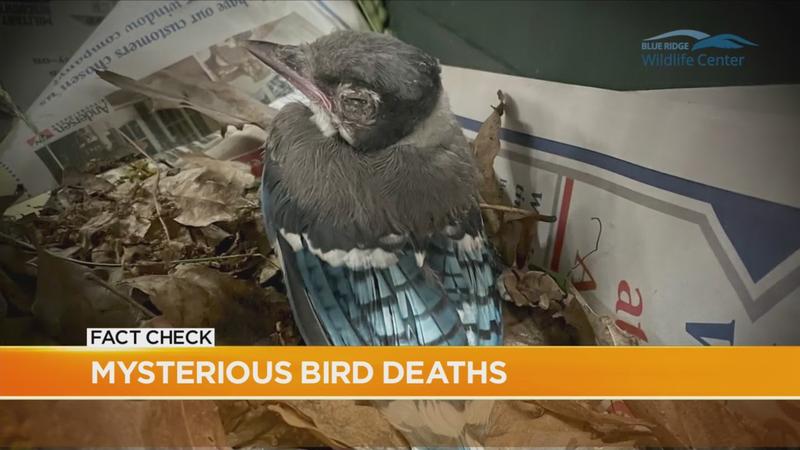Fact Check: Mysterious bird deaths
[anvplayer video=”5045421″ station=”998131″]
ROCHESTER, N.Y. (WHEC) — Take down your bird feeders! That’s a message going around on social media after reports of mass bird deaths. Some say the mysterious illness has made its way here to Western New York.
News10NBC’s Nikki Rudd is checking the facts on this one.
Birds are going blind, having seizures, and dying. Wildlife experts have been watching this outbreak that started in the Mid-Atlantic states, Pennsylvania and Ohio. Birds are dying in large numbers.
The New York State DEC has received dozens of bird death reports, but there are no confirmed links to the mass deaths happening in other states.
"There are typically many dead fledgling birds on the landscape during this time of year," said DEC spokesperson Jomo Miller. "Normal nestling/fledgling mortality rates are high with only 25 to 50 percent of songbirds surviving their first year."

[News10NBC]
However, the DEC is on alert to look out for dead birds. The mass bird deaths – mostly of fledglings of starlings, grackles, blue jays and robins – involve neurologic signs and/or eye lesions.
Despite no confirmed link, New York Audubon is recommending people take down bird feeders and birdbaths until the source of the disease is found. It’s also recommended you clean them with a solution of 10% bleach, 90% water.
If you heard the mysterious bird illness is now here in Western New York, according to the DEC that is false.
The DEC hasn’t made any recommendations on removing or cleaning bird feeders and baths, but it is working with avian experts from the Cornell Wildlife Health Lab to monitor the situation.
If you think you found a dead bird that could be linked to the outbreak you can report it to the DEC by calling the NYSDEC Region 8 Office at (585) 226-2466.
If saving a bird carcass for the DEC, gloves should be used to pick up the bird. The bird should be placed in a plastic bag, kept on ice and in the shade. Anyone handling birds, even with gloved hands, should thoroughly wash their hands afterward. Only freshly deceased birds should be saved, due to how quickly carcasses degrade in the heat. Those collecting birds should also provide DEC with their name, address and phone number.
———————————————————
Check out other Fact Checks here. If you have an idea for Fact Check, email Nikki Rudd at nrudd@whec.com.